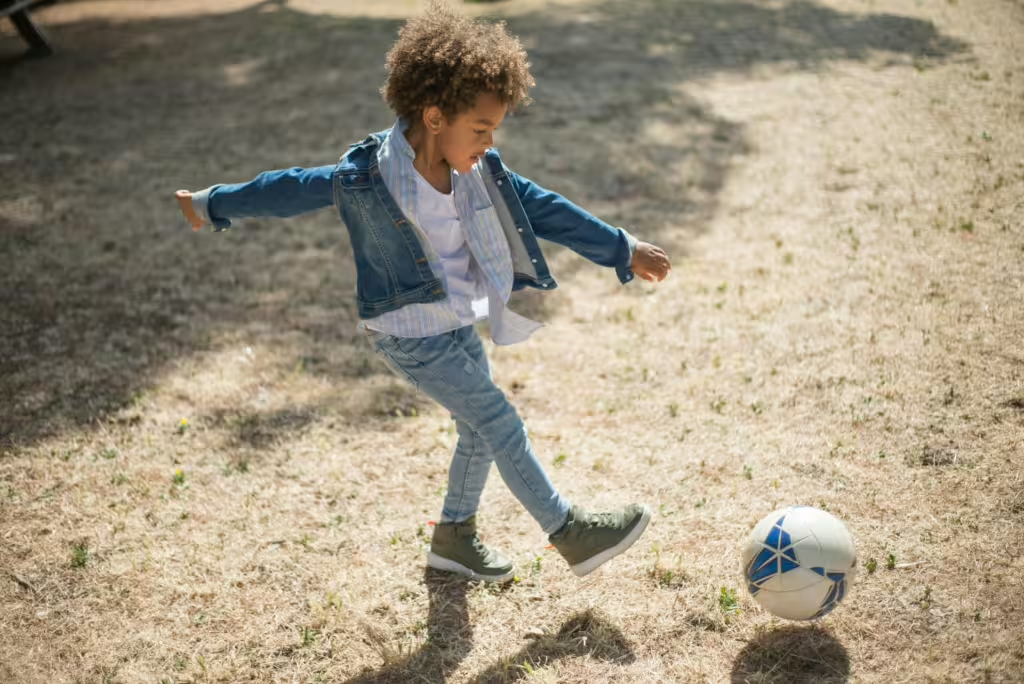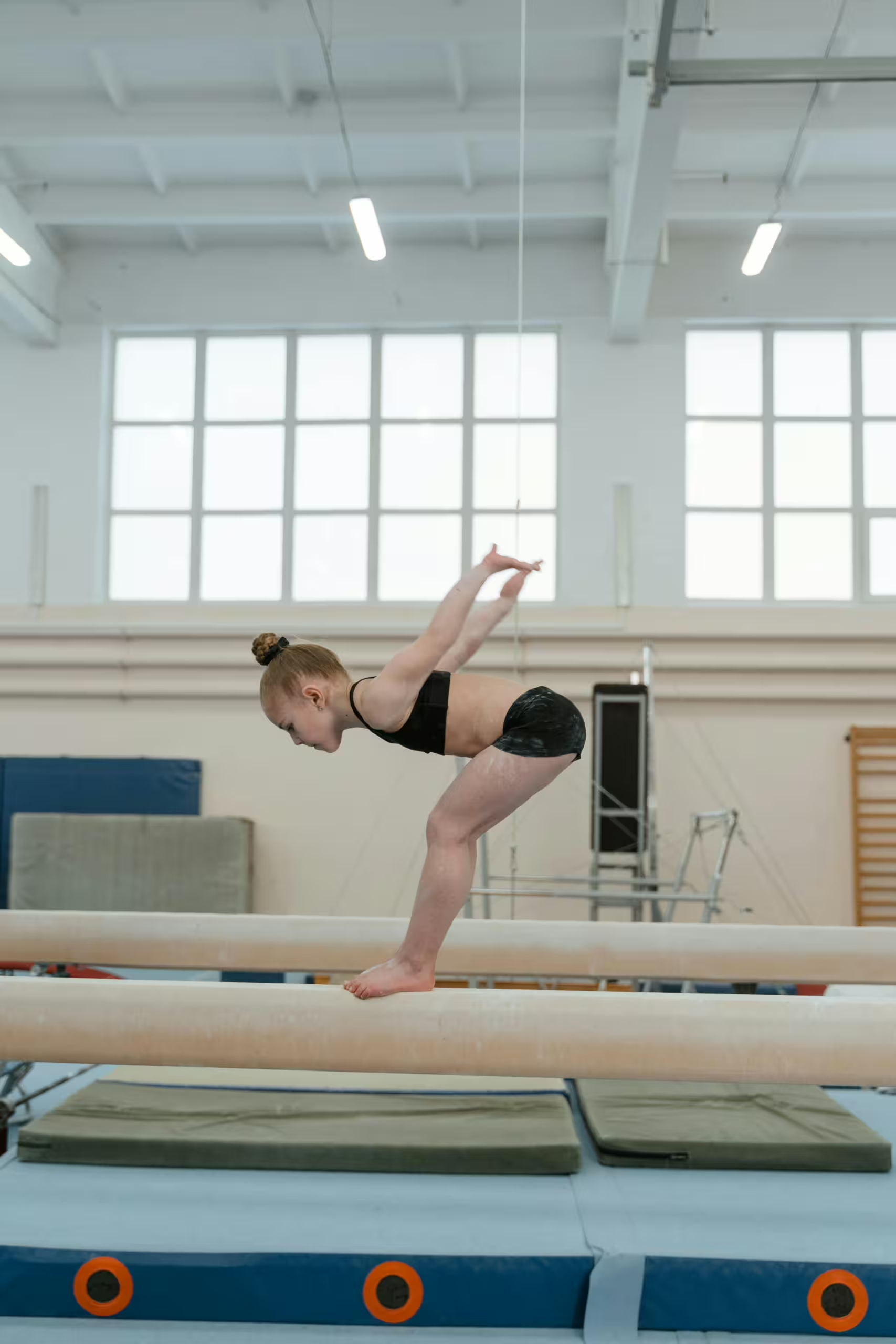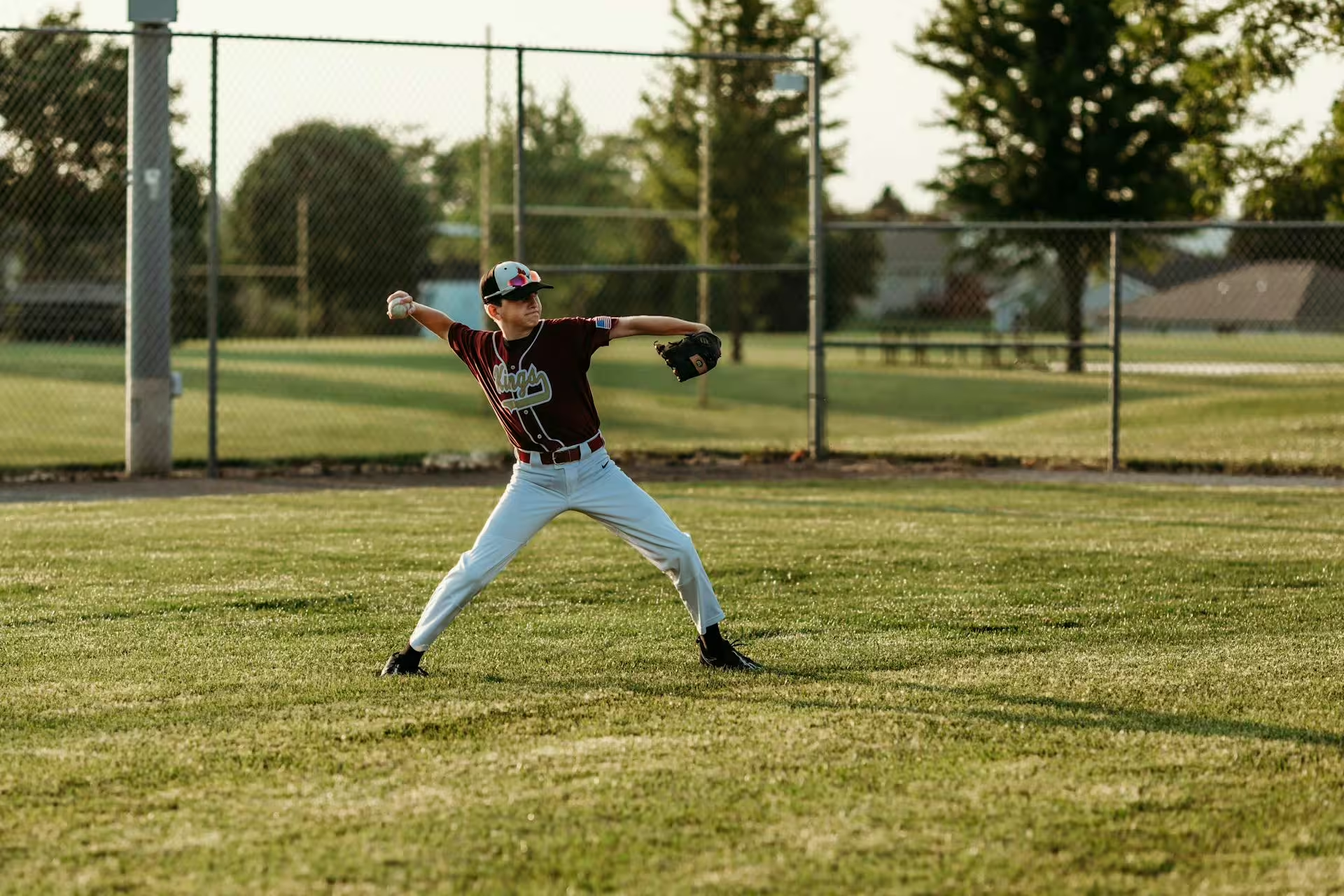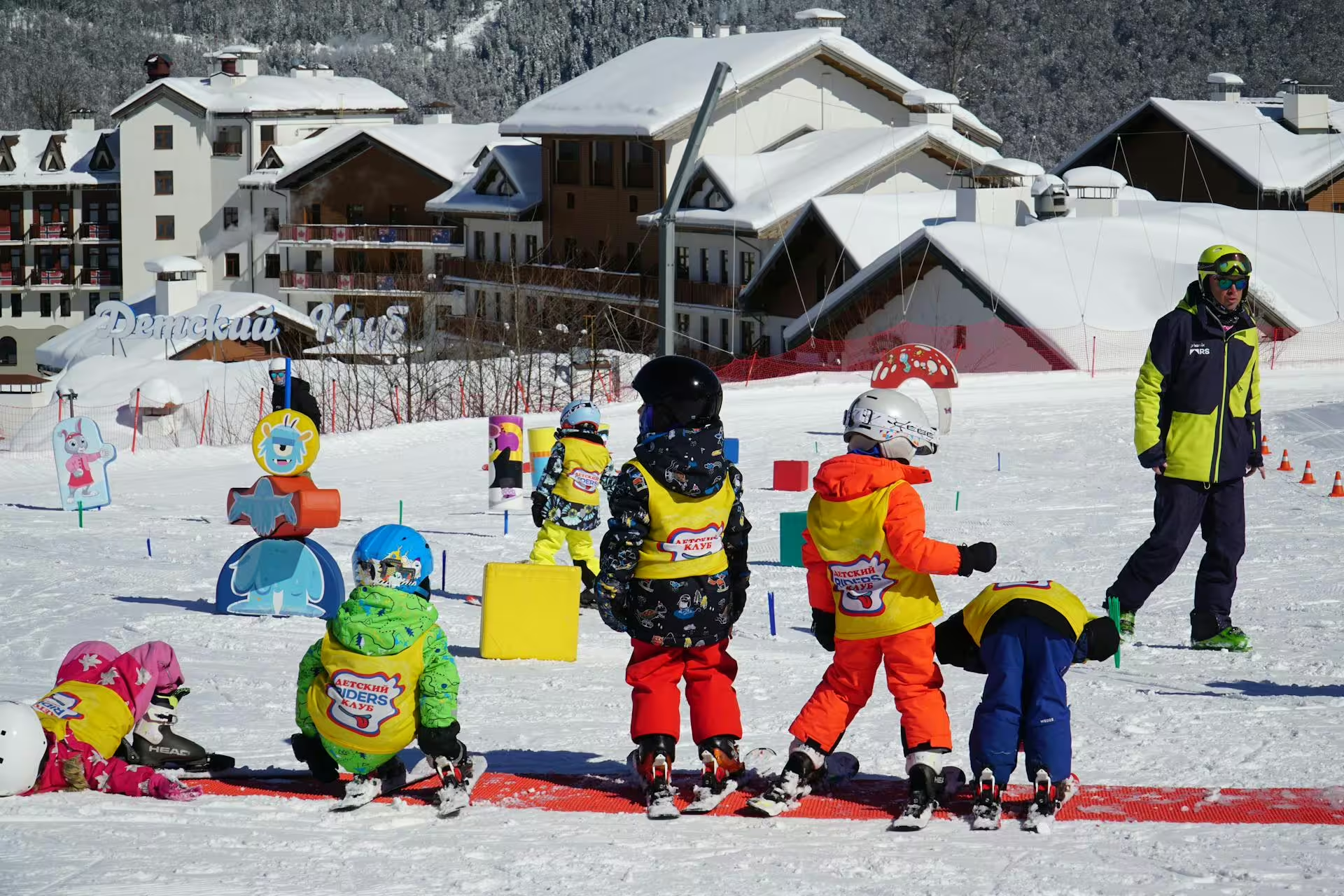Longtime readers of this website are likely aware of the myriad benefits that can be gained by introducing children to sports at a young age. Not only can sports have a significant impact on a child’s physical fitness and health, it can grant that child a host of social and emotional advantages as well. The best part is, children as young as three years old can begin participating in organized and youth sports programs. So if you’re looking to literally get your kid into the game from the get-go, there’s already a readymade way for you to do just that!
We have more good news for you as well! Many of these early childhood sports programs are designed to provide a baseline experience to even the most inexperienced young athletes. Thanks to a combination of coaching expertise and decades of experience, many such programs have been cultivated in a way that introduces children to the basic movements, skill development, rules explanations, and team building exercises that a child will need to move up in the youth sports world. Most importantly of all, these pee wee programs are more about having fun in an active environment than competing for trophies or accolades.
Ultimately though, as ideal as many of these programs might seem at first glance, there are factors that parents need to consider before enrolling their child. Parents who might be looking to enroll their kid in an early sports program need to ensure that it is age-appropriate for their little one. This means, it focuses on activities that focus on fundamental skills and not ones that foster undue amounts of competition.
In this article, we will explore the vagaries of sports programs as they pertain to children between the ages of three and five. We will help parents to understand which sports are best adapted for younger kids, as well as detailing the many benefits each of those sports provides. Finally, we will instruct parents about where they can find the resources they need to help their kids get started.
Benefits of Sports for Young Children
Before diving into the specific sports, however, it might be helpful for parents to understand the numerous benefits that come from introducing kids to organized sports at such an early age. Participating in youth sports can help young children:
Develop Motor Skills: Developing motor skills is a crucial part of every child’s early growth. Those skills will serve them in every, single area of life, and though they may not be tossing around a baseball every single day, the things they learn whilst playing that sport can be used to improve their motor skills in a tangible way. Baseball is a small example, of course, the true value of early sports comes from the child engaging in activities like running, jumping, throwing, and catching. These activities help strengthen a child’s muscles, improve their coordination, and enhance balance.
Also, because these movements are so fundamental, they actually lay the groundwork for more complex physical skills as children get older. This means that learning to run and jump in pee wee sports can contribute to better hand-eye coordination, agility, and overall body awareness, making it easier for kids to engage in various sports, but also in other physical activities as they grow.
Improving Social Skills: Many kids are gregarious from the start, but the shy ones might have a tough time adapting to social situations right away; sports can help with that! It’s true, participating in sports and group activities helps young children develop the building blocks of essential social skills. We don’t often see it at first, but when kids play sports together, they learn how to take turns, share equipment, and collaborate toward common goals.
It should also be said that these interactions teach children the value of patience, empathy, and communication, all of which are valuable skills that extend far beyond the bounds of the playing field. Being part of a team or group setting can help to foster lifelong friendships in children and in time, will teach them to understand the importance of respecting other people.
Building a Child’s Confidence: If your kids are anything like ours, they seem to think can do just about anything. That said, some children are distinctly lacking in self confidence, an essential life skill they will need at many different points in their life. Fortunately, youth sports plays a significant role in building up confidence in young children. As your child learns to master new skills and improve with practice, they gain a sense of accomplishment and the self-esteem they need to achieve those lofty goals and possibilities they have already set for themselves. Sports also teach them the value of small achievements, such as kicking a ball correctly or catching a throw, which can encourage perseverance and motivate children to continue learning.
Keep Them Staying Active: One of our main goals behind getting our children involved in sports is to encourage them to be and stay active. In the modern age of computers, screens, and video games, anything that encourages a child to happily engage with physical activity is a godsend. In fact, giving them an early introduction to an active lifestyle instills healthy habits that can last them a lifetime. Regular physical activity promotes cardiovascular health, strengthens muscles and bones, and supports mental well-being. This is important to note, because those children who engage in sports from a young age are more likely to stay active as they grow older, reducing the risk of obesity and associated health issues.
Paying Attention and Following Directions: Kids are not always the most obedient, by nature…especially between the ages of three and five. Fortunately, sports can even help with that. Kids that play sports learn important listening skills as well as learning to follow directions. They learn to understand the hierarchy that exists on the sports field. Coaches and instructors are there to guide young children with simple instructions, helping them improve their ability to focus and follow steps correctly. This, like school itself, represents yet another structured learning environment that can reinforce discipline, patience, and attention to detail, all of which will be more essential as the child grows.
Now, let’s explore the best sports options for children ages 3-5.
Best Sports for Kids Ages 3-5
We have chosen the sports below because, at this stage of their development, children benefit most from activities that focus on fundamental movement skills. Many of these are quite popular, easy to learn, and beneficial for children just being introduced into the sports world:
Soccer
Soccer is one of the most popular first sports for young children and for good reason! The first of these reasons is that it is easy to understand, the second is that it doesn’t require much equipment. Also, many communities offer programs for preschool-aged children that focus on running, kicking, and teamwork in a fun, low-pressure environment.
Benefits:
- Soccer improves balance and coordination
- Playing soccer encourages teamwork and social interaction
- Soccer develops basic foot-eye coordination
Where to Find Soccer Programs:
- Local parks and recreation departments
- YMCA youth soccer programs
- Private soccer clubs offering preschool programs

T-Ball
For those who don’t know, T-Ball is essentially baseball light. Much easier than “America’s Pastime,” this sport is a great introduction for young kids who like watching baseball but don’t yet have the skills to play. Instead of pitching, kids hit the ball off a stationary tee, which allows them to focus on making contact with the ball and developing basic hand-eye coordination.
Benefits:
- T-ball improves a child’s hand-eye coordination
- Playing T-ball teaches kids teamwork and basic game rules
- T-Ball builds confidence in hitting, running, and catching
Where to Find T-Ball Programs:
- Little League programs with beginner divisions
- Community sports organizations
- YMCA and youth baseball clubs
Gymnastics
Many young children do gymnastics even before they reach 3 years of age. Roll around, Gymboree, Little Gym, and other such establishments offer classes for toddlers as young as one. Three-year-old and higher classes are a bit more advanced. These classes focus on developing strength, balance, and coordination through activities like tumbling, jumping, and climbing. Many gymnastics centers offer classes designed specifically for preschoolers.
Benefits:
- Participating in gymnastics enhances flexibility and coordination
- Gymnastics develops core strength and balance
- Doing gymnastics encourages confidence and independence
Where to Find Gymnastics Classes:
- Local gymnastics clubs
- Parks and recreation programs
- YMCA and private sports centers
Swimming
Many parents get their kids swimming….or at least into the water from a very young age; as young as infancy, in fact. We have said it before and we will again; swimming lessons are an essential skill for all children to learn. Many programs focus on water safety, floating, and basic swimming movements in a fun, safe environment.
Benefits:
- Swimming builds water confidence and safety skills
- Learning to swim improves strength and coordination
- Swimming n the water provides full-body exercise
Where to Find Swimming Lessons:
- Community pools and recreation centers
- YMCA swim programs
- Private swim schools
Martial Arts (Karate, Taekwondo, Jiu-Jitsu)
Believe it or not, many martial arts programs exist for young children. Such programs emphasize discipline, listening skills, and basic motor movements through structured activities.
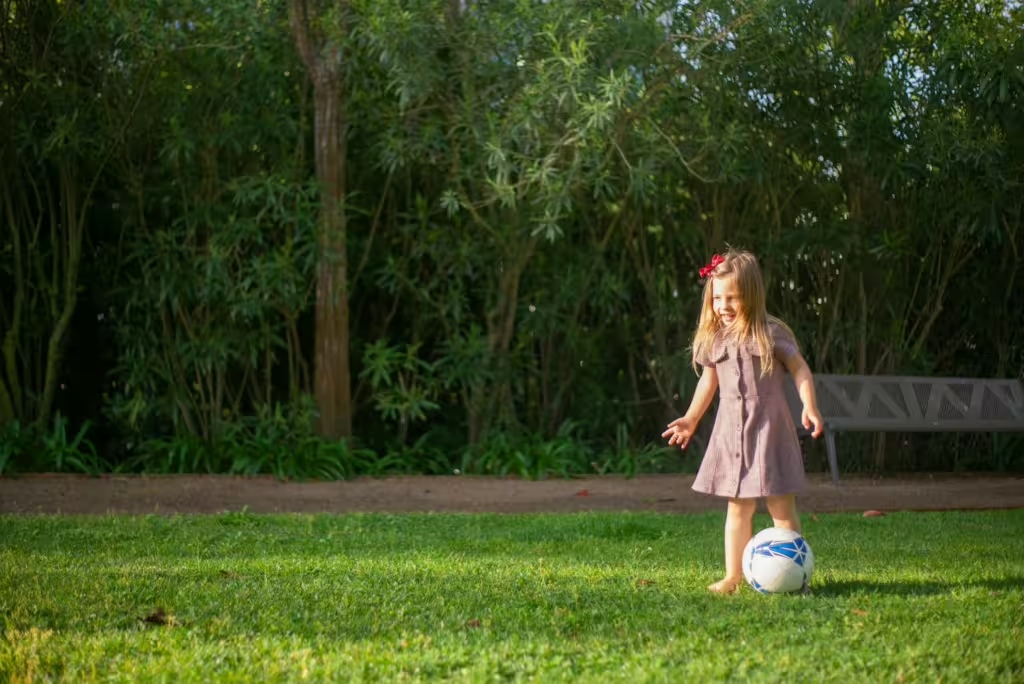
Benefits:
- Participating in martial arts encourages discipline and focus
- Doing martial arts develops balance and coordination
- Being enrolled in martial arts teaches respect and patience
Where to Find Martial Arts Programs:
- Local martial arts studios
- YMCA and community centers
- Specialized toddler martial arts programs
Dance and Movement Classes
Kids dance at the drop of a hat, but getting a more structured idea of how dance works as a sport isn’t a bad idea. Indeed, youth dance classes, such as ballet, tap, and creative movement, provide a fun way for kids to develop rhythm, coordination, and self-expression.
Benefits:
- Dancing enhances coordination and rhythm
- Learning to dance improves balance and flexibility
- Dancing with friends boosts a child’s confidence and creativity
Where to Find Dance Classes:
- Local dance studios
- Community recreation centers
- YMCA dance programs
Track and Field for Tots
If your kid is already a runner, it should be no issue at all to transition them to a more structured form of the same thing. In fact, some youth sports organizations offer introductory track and field programs for preschoolers, focusing on running, jumping, and relay races.
Benefits:
- Running improves endurance and speed
- Participating in track and field develops coordination and agility
- Running as a sport teaches children to enjoy movement and physical activity
Where to Find Track and Field Programs:
- Local track clubs
- Parks and recreation departments
- YMCA youth sports programs
Multi-Sport Programs
This final entry is a bit less well-known, but some organizations offer multi-sport classes where children can try different activities, such as soccer, basketball, and obstacle courses, all in one program.
Benefits:
- These multi-sport programs expose kids to different sports
- Sport programs like these help kids develop well-rounded movement skills
- Multi-sport programs allow children to discover what they enjoy most
Where to Find Multi-Sport Programs:
- YMCA youth sports programs
- Community recreation centers
- Private youth sports clubs
Resources for Parents
Finding the right sports program for your child can be easy. All you need to do is use the following resources:
- YMCA – Offers a variety of sports programs for young children.
- Local Parks and Recreation Departments – Provide affordable sports programs.
- Community Sports Leagues – Many towns have youth sports leagues for soccer, baseball, and more.
- USA Gymnastics & USA Swimming – Websites for finding local clubs and programs.
- Private Sports Facilities – Many offer preschool sports classes and camps.
Cultured Athlete Says…
As you can see, introducing a child to sports at a young age is easy and effective. Not only are sports a fantastic way to support a child’s physical and social development, it can encourage a love for movement and social interaction from a very young age. Whether it’s soccer, swimming, gymnastics, or dance, there are many options available for kids between the ages of three and five. Remember, by choosing the right sport and enrolling in a well-structured program, even the most unsporty parents can help their children build confidence, stay active, and have fun playing sports!
Discover more from CulturedAthlete
Subscribe to get the latest posts sent to your email.

